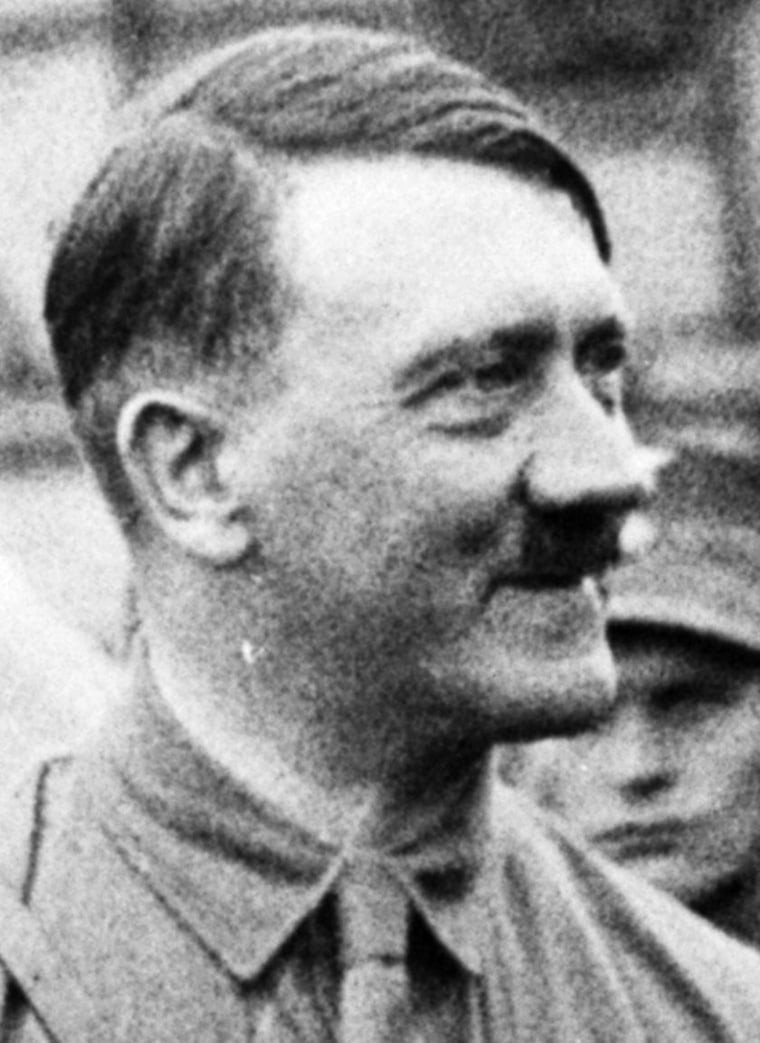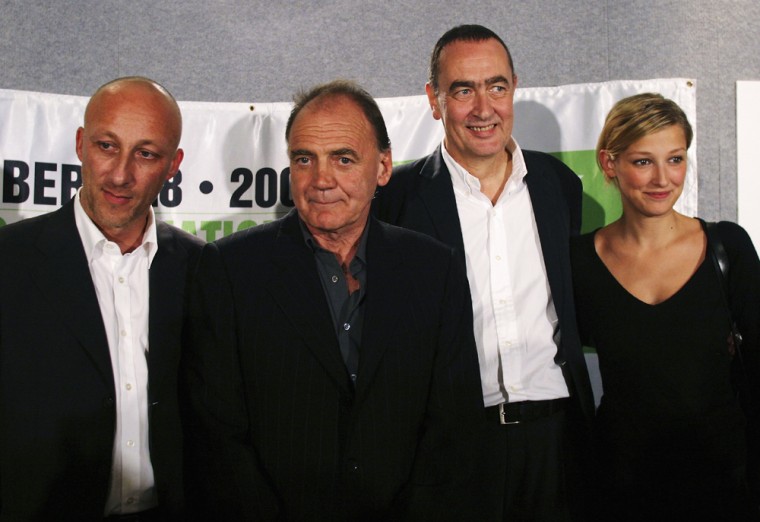A new film portraying Adolf Hitler as both a delusional madman and an occasionally softer father figure premiered in Germany on Thursday. But it has already triggered a furious public debate about whether it's the right time to break one of the nation's last taboos — showing the Nazi leader as a human being.
"Der Untergang" or "The Downfall," a film directed by Oliver Hirschbiegel and produced by Bernd Eichinger, takes a less historic and more personal approach toward the topic of Germany's Nazi past, one that German filmmakers have hesitated to touch until now.
“The Downfall” portrays the last 12 days in the life of the Hitler, and is told from the point of view of Traudl Junge, one of Hitler's personal secretaries. It is based in parts on Junge's biography and also the book, "The Downfall," by historian Joachim Fest.
Parts of the film portray Hitler as a psychopath, wandering the corridors of the bunker below the streets of Berlin, ignorant to the collapse of his empire and to the suffering population above his head.
Yet, the audience is also shown a charming side of Hitler, a man who shows moments of kindness toward his female staff.
Hitler the human
Hitler is played by 63-year-old Swiss actor Bruno Ganz, who critics say is able to produce a photographic resemblance of the Austrian-born dictator.
Ganz displays a great command of the awkward Bavarian-Austrian accent which Hitler spoke and manages to give a natural edge to Hitler's notorious outbursts.

Showing Hitler with a permanent stoop, trembling from Parkinson's disease, Ganz plays a deteriorating character, resembling both the breakdown of a human being and the system Hitler created.
Ganz admits that he probably played the most challenging role of his life. "It became a threshold I had to cross, and then I was there," he said.
"What we are trying to do is give Hitler a three-dimensional portrait, because we know from all accounts that he was a very charming man," said director Oliver Hirschbiegel. "A man who managed to seduce a whole people into barbarism."
Yet, German film magazines and newspapers have been debating over the past couple of months whether the country is ready for such a portrayal, one that could provoke sympathy for the dictator.
On Thursday, Germany's Frankfurter Rundschau daily published an interview with Niklas Frank, the son of Hitler's former general governor to Poland, who tried to explain why so many Germans were seduced by Hitler.
"The film shows very well that Hitler was not only crazy. He had a human side, which was likeable at times," Frank said. "I could have watched Bruno Ganz as Hitler incessantly," Frank said.
Leading German news magazines, like Der Spiegel and Stern, devoted entire cover stories to the movie, and Germany's tabloid newspaper Bild asked, "Are we allowed to show the monster as a human being?"
Yes, said Bernd Eichinger, one of Germany's top directors, who wrote the screenplay for the movie.
"Some day, we have to be capable of telling our own history," he said.
Ganz agreed. "If I would not have felt sympathy for the character and would not have managed to make the audience feel sympathy for the creature Hitler, then I would have failed in my job as an actor."
Still coming to terms
”The Downfall” is probably the most controversial of a number of German films in production that deal with the country's Nazi past. A three-part television series on Nazi propaganda minister Joseph Goebbels and a film called "The Goebbels experiment" is to follow later this year.
In addition, new books on the darkest chapter of German history are filling the shelves of local book stores.
"Forever in the spell of evil," read the headline of a Stern magazine report, which claims that even 60 years later, Germans still have to question why they cannot escape from Hitler's shadow.
No doubt, “The Downfall” has triggered a renewed public debate, not only in Germany, but across Europe, on what many call "Germany's biggest trauma.”
But, even though opinions of historians and critics are divided, up to now, the consensus has been mostly positive.
"I think that viewers will be able to learn a lot from this film, namely that they will get insight into the character of the Nazi regime," said the Munich historian professor Hermann Graml.
